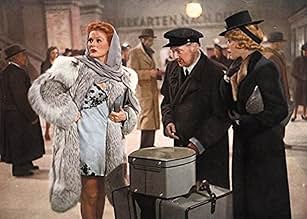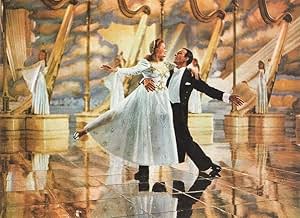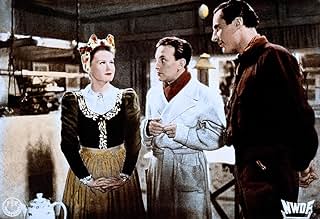This was sort of a last hurrah for big-budget Nazi cinema, as unsurprisingly the failing war effort was draining resources for such frivolities. But it makes a big effort to provide a booster shot of escapism to audiences who were no doubt in desperate need of it by then. This is basically a German equivalent to a Betty Grable movie--a gaudy color extravaganza with a silly romantic comedy plot and some pretty lavish production numbers, plus of course excuses for the star to run around half-dressed. (Though that's still more dressed than Grable would have been.) Of course, the Hollywood version would be brassy, while this is more kitschy, with an operetta-ish rather than Broadway feel. (The popular female star Marika Romm indeed performed in many stage operettas after the war.)
The plot, involving a runaway stage star taken in by two mountain-tunnel engineers who become rivals for her love, is nothing special, with no great chemistry between the competent leads and routine comedy relief from supporting actors. What is worth looking at are the big numbers, which are well-sung and produced. But they're not really INTERESTING, in terms of ideas or choreography or anything else. It's weird to see some "novelty" bits incorporating "exotic" foreign music and costume motifs, given the Nazis' extreme notions of racial/cultural superiority. (For the same reason, it's also a little strange that none of the leading characters are blond.)
Anyway, this is a curio fascinating in historical terms, but no great find as entertainment--for all the high production polish on display, the material is innocuous and its execution lacks much personality. I'm sure it did take Germans' minds off the war for a couple hours. But it can't hold a candle to the better Hollywood screen musicals of the same era.

























